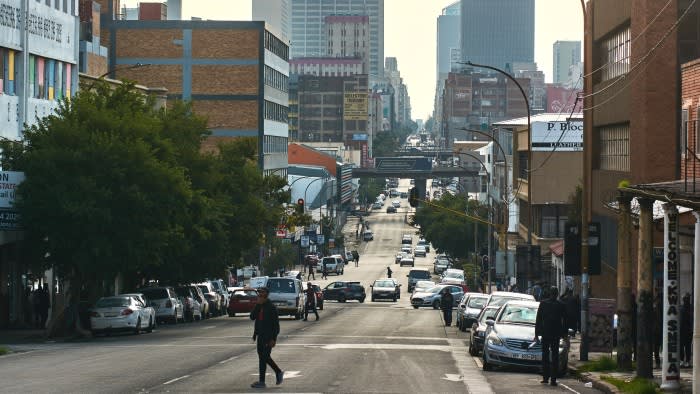
Now, members of the Texas congregation are returning to the building to worship once again. “We’ll be together in our spiritual home,” said Rabbi Charlie Cytron-Walker. “That goes a long way.”
On Jan. 15, a gunman entered Beth Israel in Colleyville, Tex., during a service broadcast live over Facebook. While the members ultimately made it out unharmed, the attack left physical and emotional scars.
The congregation’s sacred texts and items were not damaged during the gunfire, but carpets and tile needed to be replaced after law enforcement stormed the building. Supply chain issues caused delays in construction, leaving Beth Israel worshipers displaced over the last few months.
“I was in the building very, very soon after,” said Anna Salton Eisen, a founding member of the synagogue. “And it was difficult to stand in a synagogue that is supposed to be the center of our life cycle for education, for prayer … and [see it] be damaged to the point that it was uninhabitable.”
On Friday, the community will return with a special Shabbat dinner and service.
“There will be a focus on joy and celebration. There will be a focus on healing and comfort. There will be a focus on being together as a community,” Cytron-Walker said.
This Reform Jewish congregation was launched in 1998 as a Chavurah, usually lay-led, non-institutional group of Jews who regularly meet to study, pray or learn Jewish topics. Eisen, an author focused on Semitism and the Holocaust, said she and other families created Beth Israel because “we just felt we needed a place for our children who were a minority in schools to meet other Jewish children who weren’t 45 miles away.”
Over the years, it evolved into a full-fledged congregation and the first synagogue in the county. In 2006, Cytron-Walker joined as its first full-time rabbi.
Beth Israel is situated in a heavily Christian community. Its members said the broader Colleyville religious community came together to support the synagogue following the shooting.
“We’re all people of faith,” said Bob Roberts, an evangelical pastor at Northwood Church in Keller, Tex., five miles from Beth Israel. “We have disagreements. The reality is we believe in God. And so we prayed.”
For the last few months, the congregation has leaned on a nearby church where they’ve been holding their services.
“I think that it gave us the opportunity to feel that we are supported by our community and our country. And I think that is empowering,” Eisen said.
But members are ready to get back to their own location.
“I’m looking forward to having it feel like our space again and not feeling like we’re guests somewhere else,” said Devorah Titunik, who has been at the synagogue for 15 years. “I’m definitely looking forward to having sort of that back to normalcy.”
The members will be back together in time to celebrate Passover beginning on April 15, which commemorates the Israelites’ escape from slavery in ancient Egypt. It will be the first major holiday members will share in person since the pandemic pushed services in a combination of online an in-person two years ago.
“We, like every other religious community throughout the world, have had to deal with and cope with and figure out how to make things work during a pandemic,” Cytron-Walker said. “The idea that we’ll be able to celebrate in person … there’s a lot of parallels with that theme of liberation of freedom.”
While Cytron-Walker will be leaving Beth Israel for a new opportunity in North Carolina in July, he hopes that in time, Beth Israel will return “to being known for and celebrated for being a vibrant Jewish community,” Cytron-Walker said. “To be known for that more than being known as the site of a hostage situation.”
The attack came at a time when antisemitism against Jewish institutions is on the rise, according to the Anti-Defamation League. The ADL recorded 352 incidents that included antisemitic language or targeted Jewish institutions directly in 2021, a 27 percent increase from such incidents in 2020. Last month, a St. Louis and Philadelphia Jewish Community Center both received bomb threats.
“The violence that’s happening in synagogues is violence against Jewish people just because we’re Jewish,” Eisen said. “As a child of Holocaust survivors, this is not something I haven’t heard about. It’s just disconcerting and disappointing that we haven’t learned from history and this is something that we have to continue to deal with.”
Michelle Boorstein contributed to this report.



:quality(70)/cloudfront-eu-central-1.images.arcpublishing.com/irishtimes/RLEPR37I34T4PGACCOZZTXBRVY.jpg?resize=1200,630&ssl=1)











